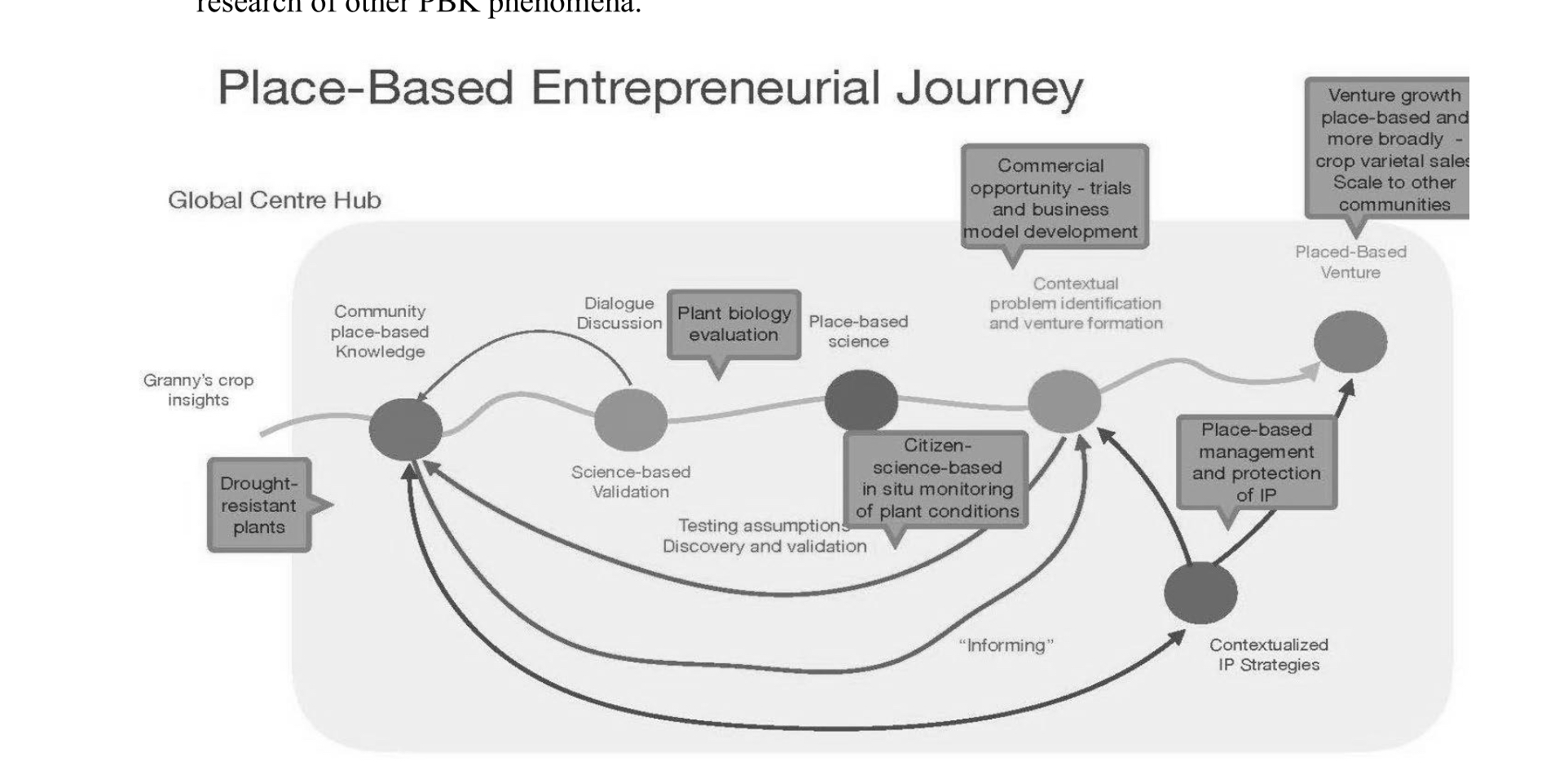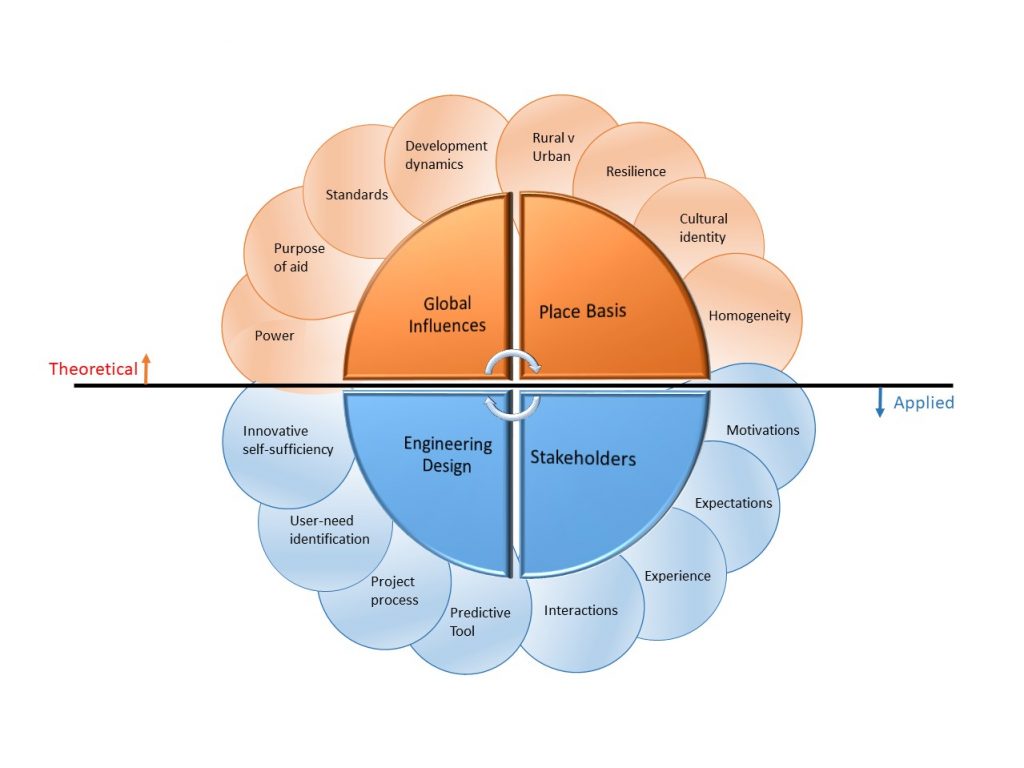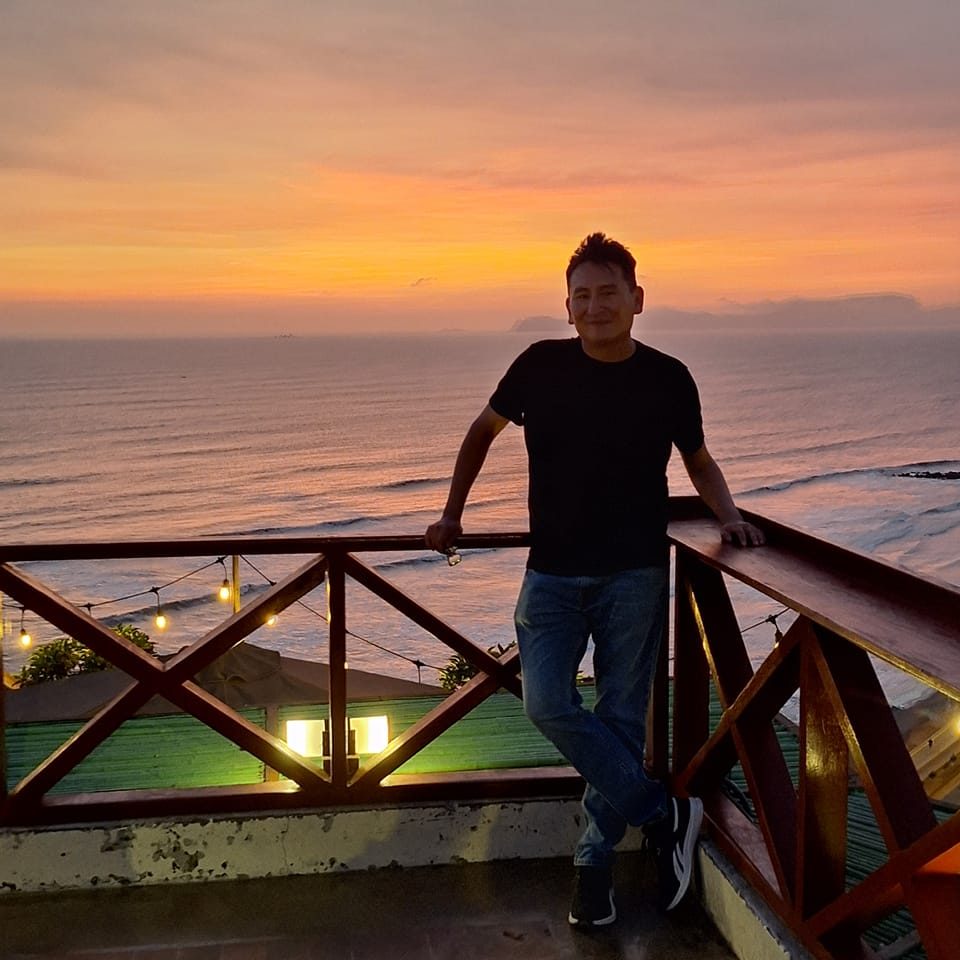MISION
Connect a global network of experts, scholars, and practitioners, to gather, organize, and apply place-based knowledge to support communities adapt to climate change impacts on food, energy, and water resources.
VISION
Become the global resource from which distinctive ideas of value are put into practice through regional hubs, operating as centers of contextualized knowledge, research, and application to address community needs under intensifying climate change impacts on the Food-Energy-Water nexus.
WHAT IS PLACE-BASED KNOWLEDGE?
Access to materials, as well
What is Contextual Engineering?
Many engineering programs and engineering-based advocacy/aid agencies have adopted the concept of user-population engagement to improve engineering design, but the process typically used—often referred to as humanitarian engineering or engineering for society—still falls under the design process of the Western engineer rather than the pathway of the user community itself. It also fails to provide a framework that can teach the engineer about contextual conditions AND allow the engineer to apply those conditions directly to technical design decision-making.
Moreover, Contextual Engineering addresses the importance of the engineer’s own mindset and predispositions in gathering information about the societal context and starts with self-evaluation for an engineering investigator. That self-evaluation leads the engineer to consider their own motivations, biases, and objectives, as well as the purposes and expectations of every other stakeholder in a project, most notably the user population itself.

CCAPS
CCAPS’s motivation is to scientifically validate use-inspired practices for responding to climate impacts, transforming them into formal processes that support adaptation, offer economic benefit to the knowledge holders, and provide new validated knowledge to the greater scientific domain.
Given the breadth of place-based knowledge (PBK) around the world that could be integrated with contemporary science to enhance communities’ adaptation to climate change in the domains of food, energy and water, how can this knowledge be identified, collected, organized, validated, and incorporated into sustainable, engineered adaptations?

CCAPS Goals
✓ Improve efficiency in addressing the GCC challenges confronting the planet
✓ Scientifically validate PBK adaptations in the domains of food, energy, and water, addressing both technologies and policies, to strengthen the corpus of knowledge available for GCC response
✓ Engender a pathway to sustainability, resilience, well-being, and respect for communities amid GCC and related challenges

How do we practice Contextual Engineering?
- The Contextual Engineer must start by developing an understanding of the world. What global influences are at play that could affect the conditions of the client society as well as the relationship between an outside practitioner with that client. Is there a history of conflict, a legacy of colonialism, unfair trade relations, racism, hierarchical relationships, any of which could change the dynamics between design practitioner and client?
- The Context of place is critical to understanding how to design an effective infrastructure. In addition to geologic, atmospheric, topographic, and other physical conditions associated with place, conditions such as indigeneity, economic need, population homogeneity, governance structure, and talents/skills must be considered. All of these will come together for a Contextual Engineer to inform appropriateness of design and implementation.
- Because any project is, at minimum, a partnership between Contextual Engineering practitioner and client, stakeholders must explore not only each others’ needs and conditions, but their own motivations and expectations as well. The savvy Contextual Engineer recognizes that their motivations are a jumble of altruistic and self-serving drivers, equipping them to recognize which motivation(s) is influencing decision-making at any given time.
- Armed with an understanding of drivers, relationships, needs, capabilities, and legacies, the designer can proceed collaboratively and iteratively with their client to produce an infrastructure design that incorporates place-based needs and conditions into a solution that leverages client capabilities using rigorous scientific thinking.
What People Think About Us
Lorem ipsum dolor sit amet, consectetur adipiscing elit. Ut elit tellus, luctus nec ullamcorper mattis, pulvinar dapibus leo.

The Global Climate Change Adaptation through Place-Based Science (CCAPS) summit presents a unique opportunity for collaboration and knowledge sharing. By bringing together experts, practitioners, and community leaders, we can foster innovative solutions that address the pressing challenges of climate change in specific contexts. This summit is not just about sharing ideas; it’s about building partnerships that empower local communities to implement sustainable practices. Engaging diverse perspectives will enrich our discussions and enhance our collective ability to adapt and thrive in the face of environmental changes. The potential impact of this gathering could resonate far beyond the summit itself, inspiring action and change in various regions.

Lorem ipsum dolor sit amet, consectetur adipiscing elit. Curabitur laoreet cursus volutpat. Aliquam sit amet ligula et justo tincidunt laoreet non vitae lorem. Aliquam porttitor tellus enim, eget commodo augue porta ut. Maecenas lobortis ligula vel tellus sagittis ullamcorperv vestibulum pellentesque cursutu.

Lorem ipsum dolor sit amet, consectetur adipiscing elit. Curabitur laoreet cursus volutpat. Aliquam sit amet ligula et justo tincidunt laoreet non vitae lorem. Aliquam porttitor tellus enim, eget commodo augue porta ut. Maecenas lobortis ligula vel tellus sagittis ullamcorperv vestibulum pellentesque cursutu.
Get In Touch
Contact Us
For any questions or additional information regarding the Global Climate Change Adaptation through Place-Based Science (CCAPS) summit in Bolivia, please don’t hesitate to contact us. Whether you need details on the event schedule, speaker participation, travel logistics, or sponsorship opportunities, our team is here to assist you. We are excited to connect with you and ensure a smooth and engaging experience at the summit.
Office Mail
patricia.vargas@engineersinaction.org
Office Number / WhatsApp
+(591) 720 40706
Office Address
Avenida Aspiazu 775, La Paz, Bolivia.